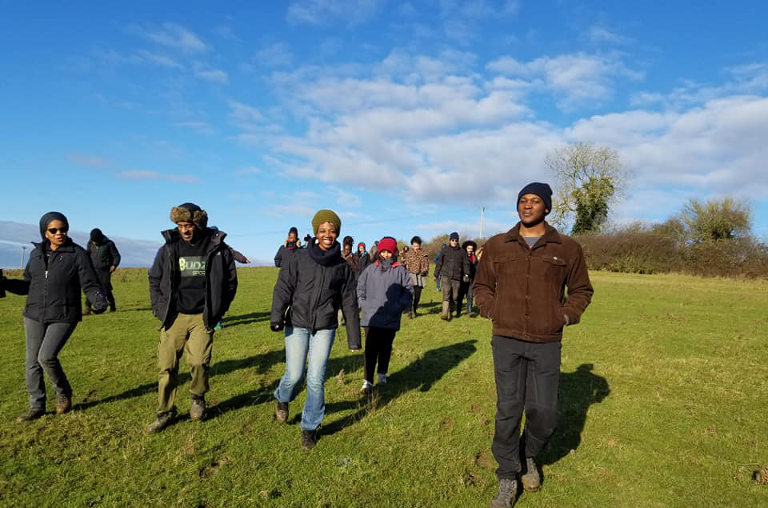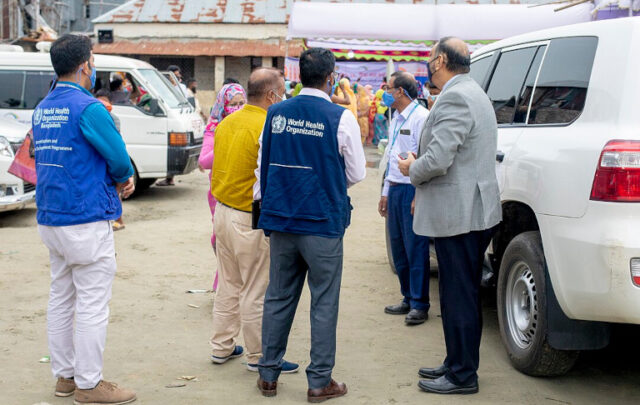The Black-led grassroots collective, Land in Our Names (LION), organised several hugely popular sessions at this year’s Oxford Real Farming Conference which addressed the racial inequality of farmers and land distribution in the UK. After three weeks of intense protest in the UK and around the world as the result of violence towards black people, LION urges us all to reimagine a Britain where the dynamics of land stewardship have changed and we work together to heal the trauma of the past.
“If you have come here to help me, you are wasting your time. But if you have come because your liberation is bound up with mine, then let us work together” – Aboriginal activists group, Queensland, 1970s
Land In Our Names (LION) stands in solidarity with Black Lives Matter in Britain, the US and across the Black diaspora. We are carrying the weight of grief for all the lives lost as a result of police brutality and structural violence, including the disproportionate effect that the COVID-19 pandemic has had on “BAME” people in Britain. We are also filled with radical joy at the strength, resilience and organisation of Black and People of Colour (BPOC) internationally.

Sam Siva
We began 2020 as a young collective with big plans for the year. At ORFC in January this year, we facilitated the workshop with Leah Penniman of Soul Fire Farm “Farming So White: Land, Ownership, Race and Racism in Britain” and held the first ever caucus for POC growers, landworkers, environmentalists and food justice organisers at Willowbrook Farm. It was an emotional experience for everyone who attended. We all remarked that we had never been in the countryside in Britain surrounded by people of colour before. The care, excitement, community and safety that we shared with each other was energising and made us even more dedicated. We want to speak to BPOC growers, landworkers, land and food justice organisers.
Then our plans for the year took a dramatic turn with the pandemic and recent demonstrations in the US, Britain and elsewhere. We have been humbled by the amount of people who have reached out to us asking for our thoughts and feelings. The truth is that we carry each life lost to racism with us always. It is a grief that we must manage everyday. This is one of the reasons why we founded Land In Our Names – we want to create an anti-racist and inclusive land and food justice movement that speaks to Black and People of Colour. Racism is a structural and systemic problem that needs reparative justice in order to stop the unnecessary violence that people of colour experience. That is why we see land reparations as crucial towards building resilient and sustainable anti-racist communities. We want to continue nurturing our fledgling network of BPOC growers, landworkers, organisers, educators and enthusiasts with empowering and inspiring events. We want to create resources that look at food and land justice through an intersectional lens. We want to support BPOC growers access to land and work.

Racial justice is the heart of LION’s mission. Our work is inspired by black and brown revolutionaries who shed light on land inequalities as a hidden driver of much racial injustice. Unequal access to land is particularly stark in Britain, where land ownership is often inherited, and concentrated into hands of a few wealthy (white) individuals and families. Little research exists on the whiteness of land ownership in Britain. But we do know the agricultural and environmental sectors are not diverse, representative or welcoming sectors employing BPOC; farming is the least diverse profession in Britain – 98.6% of farmers are White British. The environment sector is the second least diverse at 96.9% employees being White British. This is not just an employment issue but also one of access to space. In a study carried out by Natural England in 2013-15 only 56% of under-16s from “BAME” households visited the natural environment. “BAME” communities are 60% less likely to be able to access green space and natural environments than their white counterparts. Often Black and other people of colour experience different forms of racism and othering when we do manage to be in the countryside. LION is working to address the barriers preventing us from dwelling and belonging in both urban and rural green spaces.
Despite the grief and rage that we feel at this time, we are inspired and energised. The future we are working towards is one where Black  and people of colour in Britain are able to access nutritious food, green spaces and nature and grow food in both rural and urban spaces. To make this a reality we need more than your outrage or sympathy. We don’t need your help, we need allies and accomplices who can recognise that systemic racism is tied to climate change, misogyny and the other oppressive structures that perpetuate widespread violence and destruction. This means we need you to recognise how our struggles are tied together, our liberation is bound together, and that dismantling racism is not just the work of Black people or something that is only remembered when one of our deaths is recorded and broadcast. It is work that we are doing everyday and it is work that we all need to do if we want real change.
and people of colour in Britain are able to access nutritious food, green spaces and nature and grow food in both rural and urban spaces. To make this a reality we need more than your outrage or sympathy. We don’t need your help, we need allies and accomplices who can recognise that systemic racism is tied to climate change, misogyny and the other oppressive structures that perpetuate widespread violence and destruction. This means we need you to recognise how our struggles are tied together, our liberation is bound together, and that dismantling racism is not just the work of Black people or something that is only remembered when one of our deaths is recorded and broadcast. It is work that we are doing everyday and it is work that we all need to do if we want real change.
Reparations is about recognising that the wealth and privilege of white people came from the exploitation of black and indigenous people and taking the necessary steps to heal that trauma. That means taking time to understand how you benefit in whatever way from white supremacy. It means using what resources and platforms you have access to and giving them to people of colour. It means supporting BPOC organisations and institutions. It means dedicating time to learning more about the histories and cultures of racialised people. It means listening to and learning from Black and people of colour. As the Nigerian journalist and poet, Professor Chinweizu said,
“Reparation is not just about money. It is not even mostly about money; in fact, money is not even one percent of what reparation is about. Reparation is mostly about making repairs. self-made repairs, on ourselves: mental repairs, psychological repairs, cultural repairs, organizational repairs, social repairs, institutional repairs, technological repairs, economic repairs, political repairs, educational repairs, repairs of every type that we need in order to recreate and sustain black societies.”
If you would like to support Land In Our Names, you can donate contact the LWA designating that your donation should be handed over to LION: [email protected]
We’ve compiled a short list of fundraisers you can give money to, groups to follow, and resources below:
- Fundraisers:
- Black Land & Spatial Justice Fundraiser (https://uk.gofundme.com/f/black-land-justice)
- Black Lives Matters UK Fundraiser (https://gf.me/u/x6ip22)
- Organisations:
-
- United Families & Friends Campaign (https://uffcampaign.org/) – supporting and connecting friends and families of people killed by the police in the UK
- UBELE (https://www.ubele.org)
- Black Rootz are a black-led multigenerational project at Wolves Lane in north London. It is an incubation project by Ubele where elders share their growing knowledge and support young people (https://www.ubele.org/black-rootz)
- Resources:
- Food Systems New England has a brilliant collection of resources and prompts for Racial Equity in Food Systems that can be done as a 21 day challenge or in your own time. While it focuses on the US we can draw a lot of parallels to the UK (https://foodsolutionsne.org/21-day-racial-equity-habit-building-challenge/)
- ‘Why I’m No Longer Talking to White People About Race’ Renni Eddo-Lodge is a brilliant article and book about white supremacy in the UK (https://www.theguardian.com/world/2017/may/30/why-im-no-longer-talking-to-white-people-about-race) the book is sold out at the moment but you can read her article here
- ‘White Supremacy & Me’ Layla F Saad this book has exercises that help you understand your privilege and how white supremacy works (https://www.meandwhitesupremacybook.com/)
-
LION is a black-led grassroots collective committed to reparatory justice in Britain through securing land for BPOC communities. We are reimagining dynamics of land stewardship and are committed to a deep healing of the colonial-rooted trauma that separates us from this reality at present. We understand land rights as being central to food security and well being as the basis for revolution and sovereignty in our communities. We are working to transform the narrative around land in Britain in how it relates to intersections of race, gender and class for systemic change.





